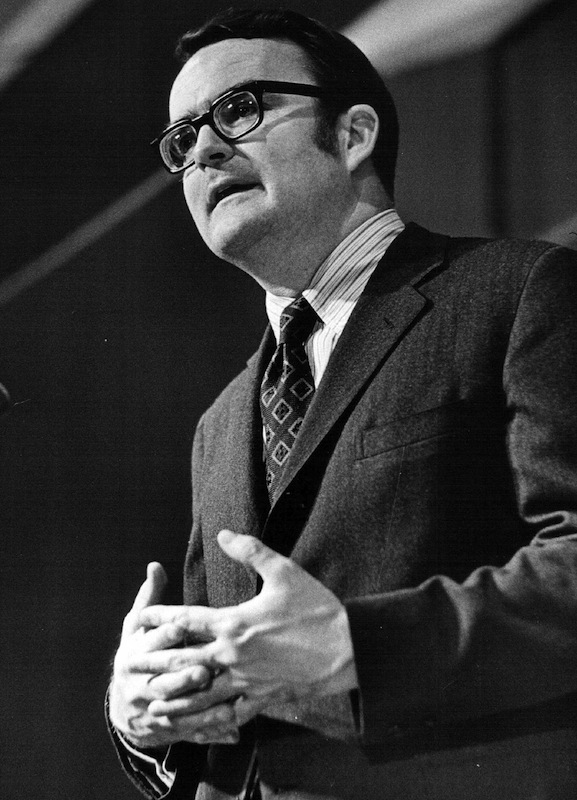
Compared to people like Barbra Streisand and Yogi Berra, it’s hard to seem important—even if you’re receiving the Presidential Medal of Freedom on Tuesday. That’s especially likely to be true if your description in the official announcement is “dedicated public servant” rather than actor or athlete.
But for people like William Ruckelshaus, being less glamorous doesn’t mean making less of an impact on history. Here’s why he matters:
Ruckelshaus served as Deputy Attorney General in the Nixon Administration and resigned the post rather than carry out an order to fire the Watergate special prosecutor. He was also the first head of the Environmental Protection Agency (and later returned to lead the agency in the 1980s).
When the EPA was established in 1970, TIME dubbed Ruckelshaus the “Policeman for Pollution” and explained that he had been fighting for the environment since before the modern environmental movement went mainstream:
Conservationists are pleased because the quiet Indianan turns out to have a significant record of prosecuting polluters. A graduate of Harvard Law School (’60), he got his first whiff of the task as a deputy attorney general in his home state, when he investigated a tomato cannery for emitting such terrible stinks that townspeople suffered from “olfactory fatigue” and could smell nothing. He went on to file suits against numerous corporations and municipalities for their pollution practices. In 1963 he drafted the Indiana Air Pollution Control Act, which imposed strict standards on local governments and empowered the state to enforce them.
And, though President Nixon himself was quoted joking with Ruckelshaus, “You’re the enforcer…You’re going to be called a lot worse,” the EPA chief pulled off the impressive feat of winning praise for conservationists and businesses alike as a no-nonsense but judicious guide for environmental policy.
Not that he would have minded some name-calling in service of the environment. “In a job like this,” he told TIME, “you’re bound to ruffle some feathers.”
Read the full 1970 story here, in the TIME Vault: Policeman for Pollution
More Must-Reads From TIME
- The 100 Most Influential People of 2024
- The Revolution of Yulia Navalnaya
- 6 Compliments That Land Every Time
- What's the Deal With the Bitcoin Halving?
- If You're Dating Right Now , You're Brave: Column
- The AI That Could Heal a Divided Internet
- Fallout Is a Brilliant Model for the Future of Video Game Adaptations
- Want Weekly Recs on What to Watch, Read, and More? Sign Up for Worth Your Time
Write to Lily Rothman at lily.rothman@time.com